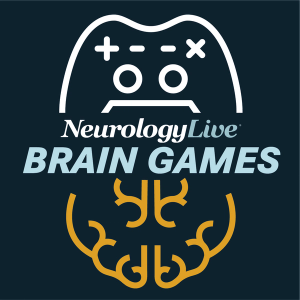
At MDS 2025, the professor of neurology at University de Tunis El Manar described the role of global collaboration in advancing the understanding, diagnosis, and management of Parkinson disease. [WATCH TIME: 6 minutes]

Matt Hoffman, Editorial Director for NeurologyLive, has covered medical news for MJH Life Sciences, NeurologyLive’s parent company, since 2017. He executive produces the NeurologyLive Mind Moments® podcast, and hosted the Medical World News show Deep Dive. Follow him on Twitter @byMattHoffman or email him at [email protected]

At MDS 2025, the professor of neurology at University de Tunis El Manar described the role of global collaboration in advancing the understanding, diagnosis, and management of Parkinson disease. [WATCH TIME: 6 minutes]

The associate professor and clinician-scientist at the University of Toronto spoke to the current understanding of protein waste clearance in neurodegeneration. [WATCH TIME: 4 minutes]

The chief of the Movement Disorders Division at Yale School of Medicine discusses the nuance around patient choice in Huntington disease testing and providing treatment regardless of confirmation. [WATCH TIME: 3 minutes]

The chief medical officer of Gain Therapeutics discusses the challenges that are unaddressed with currently available treatments for Parkinson, and how investigational treatments like GT-02287 might address those needs. [WATCH TIME: 3 minutes]

The chief medical officer of Gain Therapeutics discusses GT-02287, a promising treatment for Parkinson that has shown strong safety and tolerability in an ongoing phase 1 trial. [WATCH TIME: 3 minutes]

New real-world data confirms the safety and tolerability of high-dose apomorphine infusion for advanced Parkinson's disease, enhancing treatment options.

A phase 2 study shows risvodetinib improves safety and symptoms in early Parkinson disease, suggesting potential as a disease-modifying therapy.

New research highlights ecopipam's effectiveness in reducing Tourette syndrome symptoms and relapse risk in children, offering a promising treatment alternative.

AbbVie’s application to the FDA for its selective dopamine D1/D5 receptor partial agonist is supported by data from the phase 3 TEMPO study program.

Marketed as Amvuttra, the Alnylam Pharmaceuticals RNA-interference treatment is now approved for an additional patient population of 150,000 in the US, and more than 300,000 worldwide.

Data from more than 16,000 trial participants point to possible challenges with assessing and safely administering novel therapeutics among those with comorbidities—which may be present in as much as half of the patient population.

The thrombolytic treatment, branded as TNKase and approved for adults, is administered as a 5-second IV bolus, upping the speed and simplicity of the 60-minute infusion of the previously approved alteplase (Activase; Genentech).

The positive finding on the secondary end point of 6-month confirmed disability worsening supports the data from the phase 3 HERCULES trial in secondary progressive multiple sclerosis.

The codirector of the Precision Medicine MS Center at Johns Hopkins University discussed the new updates to the MS diagnostic criteria presented at the 40th ECTRIMS Congress in Copenhagen. [WATCH TIME: 5 minutes]

Data from the MAGNIFY-MS study suggest that low 24-month PIRA rates across age groups and among those with or without treatment experience.

The data showed only a small number of infusion-related reactions among patients with MS transitioning from other disease-modifying therapies.

Test your neurology knowledge with NeurologyLive®'s weekly quiz series, featuring questions on a variety of clinical and historical neurology topics. This week's topic is headache and migraine.

The dihydroergotamine product’s application was supported by phase 1 comparative pharmacokinetic and safety data, and the phase 3 ASCEND trial.

Test your neurology knowledge with NeurologyLive®'s weekly quiz series, featuring questions on a variety of clinical and historical neurology topics. This week's topic is epilepsy and seizure disorders.

Test your neurology knowledge with NeurologyLive®'s weekly quiz series, featuring questions on a variety of clinical and historical neurology topics. This week's topic is Alzheimer disease and dementia.

Test your neurology knowledge with NeurologyLive®'s weekly quiz series, featuring questions on a variety of clinical and historical neurology topics. This week's topic is ataxia.

Test your neurology knowledge with NeurologyLive®'s weekly quiz series, featuring questions on a variety of clinical and historical neurology topics. This week's topic is ataxia.

Notably, nearly 50% of patients prescribed the Biocodex therapy were not on concomitant clobazam, a contrasting practice with the FDA label’s indication. To date, no data support its use as monotherapy for Dravet syndrome.

Test your neurology knowledge with NeurologyLive®'s weekly quiz series, featuring questions on a variety of clinical and historical neurology topics. This week's topic is the history of the American Epilepsy Society.

Test your neurology knowledge with NeurologyLive®'s weekly quiz series, featuring questions on a variety of clinical and historical neurology topics. This week's topic is general neurology.

Test your neurology knowledge with NeurologyLive®'s weekly quiz series, featuring questions on a variety of clinical and historical neurology topics. This week's topic is epilepsy and seizure disorders.

Test your neurology knowledge with NeurologyLive®'s weekly quiz series, featuring questions on a variety of clinical and historical neurology topics. This week's topic is Parkinson disease.

Test your neurology knowledge with NeurologyLive®'s weekly quiz series, featuring questions on a variety of clinical and historical neurology topics. This week's topic is narcolepsy.

Jeffrey Cohen, MD; Sarah Anderson, PharmD, NBC-HWC; and Alicyn Magruder, PharmD, BCACP, MSCS, share their final thoughts on the future landscape of clinical MS care in the biosimiliars era. [WATCH TIME: 12 minutes]

The group continues discussion about patient communication needs, and Sarah Anderson, PharmD, shares resources that the National MS Society offers to both patients and providers. [WATCH TIME: 9 minutes]

Published: May 13th 2022 | Updated:

Published: March 26th 2022 | Updated:

Published: July 14th 2023 | Updated:

Published: February 12th 2023 | Updated:

Published: October 29th 2023 | Updated:

Published: June 4th 2021 | Updated: